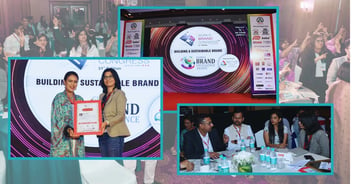Marketing Consultant, Full-time Marketer, or going Hybrid

Introduction
There’s nothing linear about business, and there’s no right or wrong way to get projects done. The good news is that you have a choice: you can opt for experienced professionals who have seen it all and can provide you with the best solutions, or you may prefer someone who is there full-time, or you might like to have the best of both worlds! Let’s explore.
Who’s Who
A Marketing Consultant is a professional who provides expert advice and guidance to businesses or individuals to enhance their marketing strategies. They have extensive knowledge and experience in various aspects of marketing, offering insights, recommendations, and solutions to help clients improve their overall marketing performance and achieve their goals. They are the ones who have seen all the seasons and can advise on what’s the best practice for each season!
A Full-time Marketing professional is an individual employed by a company on a permanent basis to handle various marketing responsibilities. Their experience level varies and can be college interns, fresh graduates too.
Hybrid approach combines the best of both the worlds. This means having a mix of in-house marketing professionals and external consultants, who bring specialized skills or fresh perspectives.
Why Marketing Consultant?
Efficiency: Prioritizing quick outcomes, staying focused on the task without unnecessary distractions.
Creativity: Injecting unbiased viewpoints, consultants bring innovative strategies and uncover untapped opportunities.
Adaptability: Open to change, they can pilot new strategies, technologies, and channels for innovative marketing.
Connections: Consultants leverage their networks for partnerships and tools at negotiated rates, enriching strategy and execution.
Progressiveness: Informed about the latest trends, ensuring cutting-edge strategies for a competitive advantage.
Meritocratic: Unaffected by biases or internal politics, their focus is solely on what benefits the business, expediting decisions.
Analysis: Analyzing businesses with fresh eyes, experts identify overlooked areas and provide actionable insights. Johari’s window concept is put in play.
Cost versus Benefit: Due to the nature of their profile, there is a premium fee attached to consultants based on their skill, expertise, and years of experience but without added overhead costs like benefits or workspace.
Cost Management: Companies can manage costs effectively by engaging consultants for specific projects, avoiding the financial commitment of permanent hires for short-term needs.
Why Full-Time Marketer?
Team Collaboration: Integrating a full-time marketing professional enhances collaboration, problem-solving, and creativity within your team.
Dedicated Resource: Having a dedicated resource exclusively focused on your company’s projects.
Building Organizational Reputation: Building an in-house team signifies the company’s commitment to employee well-being, offering challenging projects and growth opportunities. This helps in establishing the company as the preferred workplace.
Cost versus Benefit: Investing in a full-time marketing professional goes beyond salary, covering additional costs like taxes, benefits, workspace, and ongoing training. While these expenses accumulate, the value of having a dedicated team member contributing across various business aspects and growing with your company shouldn’t be underestimated.
Why Hybrid?
Diverse Skill Sets: The collaboration brings together the diverse skill sets of in-house marketers and consultants, fostering a well-rounded and capable team.
Strategic Insights: Marketing consultants contribute strategic insights, leveraging their external perspective to enhance the overall marketing strategy.
Resource Optimization: Consultants provide additional resources when needed, optimizing the use of talent and preventing overstaffing during quieter periods.
Knowledge Transfer: In-house marketers can benefit from the industry knowledge and best practices brought in by consultants, promoting continuous learning and skill development.
Efficiency and Speed: Collaboration accelerates project timelines and enhances overall marketing efficiency, allowing for quicker responses to market demands.
Innovation: The synergy between in-house and consultant perspectives encourages innovation, leading to creative solutions and fresh approaches to marketing challenges.
Conclusion
Choosing between a marketing consultant, a full-time professional, or a hybrid model is an important decision for your business.
-
If you need specialized skills, fresh perspectives, or attention to targeted projects or expertise gaps, a marketing consultant is a good choice. It offers flexibility and avoids ongoing employment costs.
-
If stability, long-term growth, and team cohesion are crucial, opting for a full-time hire is recommended. However, additional expenses like benefits, workspace, and training investments should be considered.
-
The hybrid model is suitable for specific projects that require skills not available in-house. It’s also useful for strategic changes or new initiatives. Additionally, it works well for short-term projects that need additional resources. The hybrid approach is beneficial for an unbiased assessment of existing strategies or processes. It’s also effective for responding to evolving industry trends or competitive challenges. Lastly, it’s ideal when project timelines need to be expedited or quick solutions implemented.
Remember, your business journey is unique, and there’s no one-size-fits-all answer. Thoughtful consideration will lead to a decision that propels your company toward its goals. Feel free to share your thoughts and comments in the below section. I look forward to discussing how you plan to structure your team.
Cheers to making the right choice for nurturing your business’s growth and success. Happy hiring !
Related content worth reading

Purpose Driven Marketing Campaigns
Insights from World Brand Congress on measuring purpose-driven marketing effectiveness & societal impact

An Upgrade to the latest web technologies
Our website reflects the future of web technology, constantly evolving with innovative tools and technology to meet modern demands.